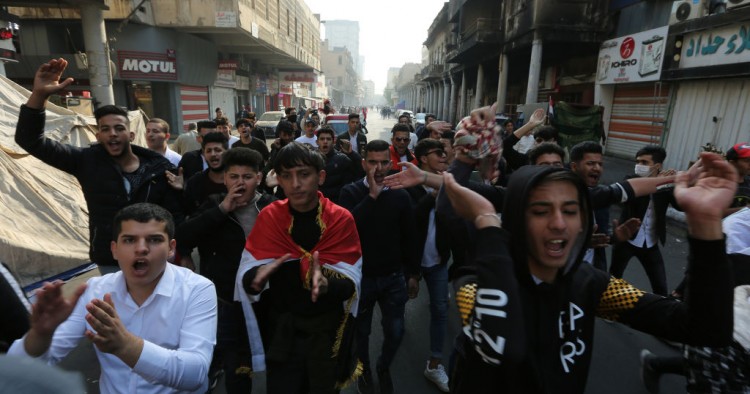Iraq’s protests are not showing any sign of subsiding, with security officials describing yesterday’s violence in the southern provinces as the worst day yet. Iraqi officials are pursuing a three-pronged strategy of meting out violence in the hope of forcing people off the streets, shutting down media outlets that are not pro-government to control the narrative about the uprisings, and having Parliament review
On Saturday, U.S. Vice Preside
Rumors abound in Baghdad of a military coup. The Iraqi Counter-Terror
Although more than 300 Iraqis have died to date and close to 16,000 have been wounded, protesters are not going home. Yet, most of the ruling clique is still rejecting the idea of forcing the prime minister to resign, citing fears of a security vacuum in the aftermath that would lead to a civil war between the protestors and pro-status quo forces, the great majority of both camps being Arab Shi’a.
Two parliamentary blocs led respectively by Muqtada al-Sadr and former Prime Minister Haider al-Abadi are calling on the leadership of the Council of Representatives to schedule a session to question the prime minister about the use of force against the protesters ahead of a push by these blocs for a vote of no-confidence in the government.
Randa Slim is a Senior Fellow and the Director of MEI’s Conflict Resolution and Track II Dialogues Program.
Photo by SABAH ARAR/AFP via Getty Images
The Middle East Institute (MEI) is an independent, non-partisan, non-for-profit, educational organization. It does not engage in advocacy and its scholars’ opinions are their own. MEI welcomes financial donations, but retains sole editorial control over its work and its publications reflect only the authors’ views. For a listing of MEI donors, please click here.













